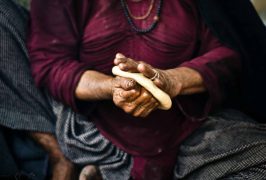Ottawa – On Thursday, May 21, the Supreme Court of Canada will render its decision in Kokopenace v. HMTQ. The key issue in the case is the scope of the right to a representative jury under the Canadian Charter of Rights and Freedoms, and whether Ontario’s procedure for creating jury rolls does enough to include on-reserve Aboriginal residents.
Mr. Kokopenace was convicted of manslaughter in June of 2008, and seeks a new trial on the basis that the jury was improperly constituted because it was derived from a jury roll that failed to adequately include on-reserve Aboriginal residents. Roughly one third of the population of the District of Kenora, where Mr. Kokopenace was tried, lives on-reserve. In spite of this, only four percent (29) of the 699 potential jurors on the jury roll were on-reserve residents.
In Ontario the jury roll is assembled by randomly selecting names from the most recent municipal enumeration. Because this does not include on-reserve residents, there is a supplemental process by which any available list of on-reserve residents can be used to select potential jurors. The norm for this district was to use a band list obtained directly from the reserve or a list from Indian and Northern Affairs Canada (INAC) if one could not be obtained directly. In 2001, INAC stopped providing lists for this purpose, making it difficult to obtain up-to-date information for jury roll preparation. The selection process was still relying on INAC lists from 2000 for well over half of the reserves in the area by 2008. Additionally, the rate of response to jury questionnaires sent to on-reserve residents was always low (33% in 1994, compared to 60-70% for off-reserve residents), but it declined steadily, to 15% in 2002 and 10% by 2008.
The Ontario Court of Appeal found that the provincial government failed to meet its responsibility to address the under-representation of on-reserve people in the jury pool. The Court held that Ontario did not provide proper instruction to employees working on the problem, failed to significantly update its policies in light of the changing circumstances, and failed to investigate the causes of the problem so that it could more effectively address them.
The David Asper Centre for Constitutional Rights and the Women’s Legal Education and Action Fund (LEAF) jointly intervened in this case. They argued that the under-inclusion of prospective Aboriginal jurors living on-reserve violated section 15 of the Charter by perpetuating the historic disadvantage of both Aboriginal accused persons and the prospective jurors themselves, since Aboriginal peoples were historically excluded from the opportunity to participate in juries, and a representative jury is more likely to judge an accused impartially.
The David Asper Centre and LEAF took the position that the criminal justice system must actively pursue substantive equality in order to be truly compatible with section 15 of the Charter. However, they argued that the justice system will never reflect this value unless the Court actually undertakes s.15 analysis in cases where equality rights are implicated, and addresses equality when thinking about fundamental principles of criminal law. For this reason, if the Court is going to determine what qualifies as a fair adjudicative process under s.11(d) and (f) of the Charter, the Asper Centre and LEAF argued it must consider the impact of that adjudicative process on vulnerable or historically disadvantaged groups.
LEAF and the Asper Centre urged the SCC to find that the exclusion of Aboriginal people resident on-reserve from the jury rolls constitutes a violation of s. 15 for both the Respondent and for potential jurors. Further, the Crown’s discriminatory failure to take reasonable steps to include on-reserve residents in the jury roll perpetuates the historic disadvantage of Aboriginal accused persons and prospective on-reserve jurors. The larger context of systemic, persistent, pervasive discrimination against these populations cannot be ignored, and the Crown’s failure here must not be excused
The David Asper Centre was represented by its Executive Director Cheryl Milne, and LEAF was represented by Kim Stanton, its Legal Director. Second-year University of Toronto JD students Ethan Schiff and Sarah Beamish worked on this case through the Asper Centre clinic, along with LEAF’s Donner Fellowship student Katherine Long.
The Asper Centre and LEAF’s argument in this case is available here and a brief description of the joint argument is available here.
What: Supreme Court of Canada to render judgment in Kokopenace v. HMTQ
When: May 21 at 9:45am Eastern
Where: Supreme Court of Canada (Ottawa, Ontario)
MEDIA CONTACTS
Cheryl Milne, Executive Director of the David Asper Centre for Constitutional Rights: (416) 978-0092 or [email protected]
Kim Stanton, Legal Director of Women’s Legal Education and Action Fund: (416) 595-7170 or [email protected]
